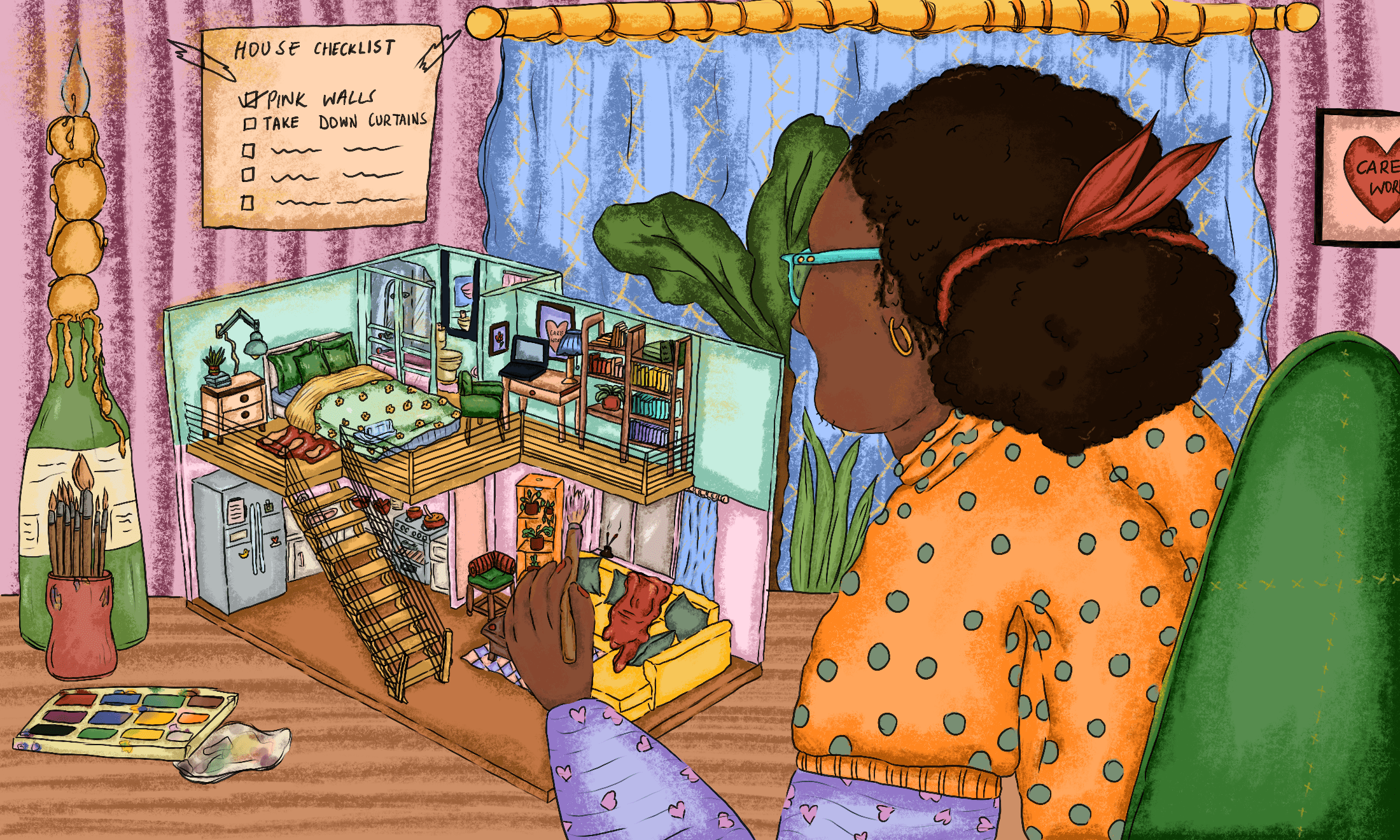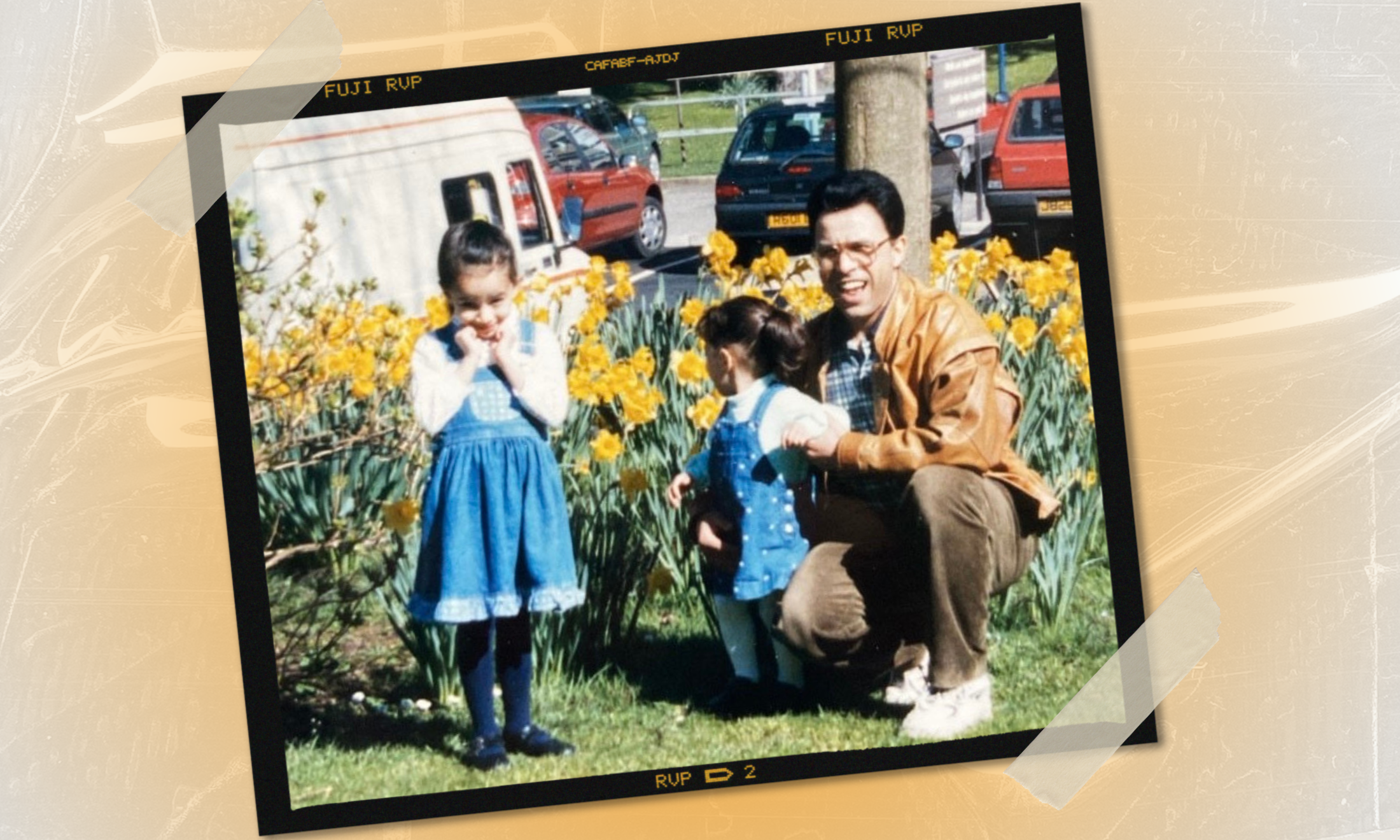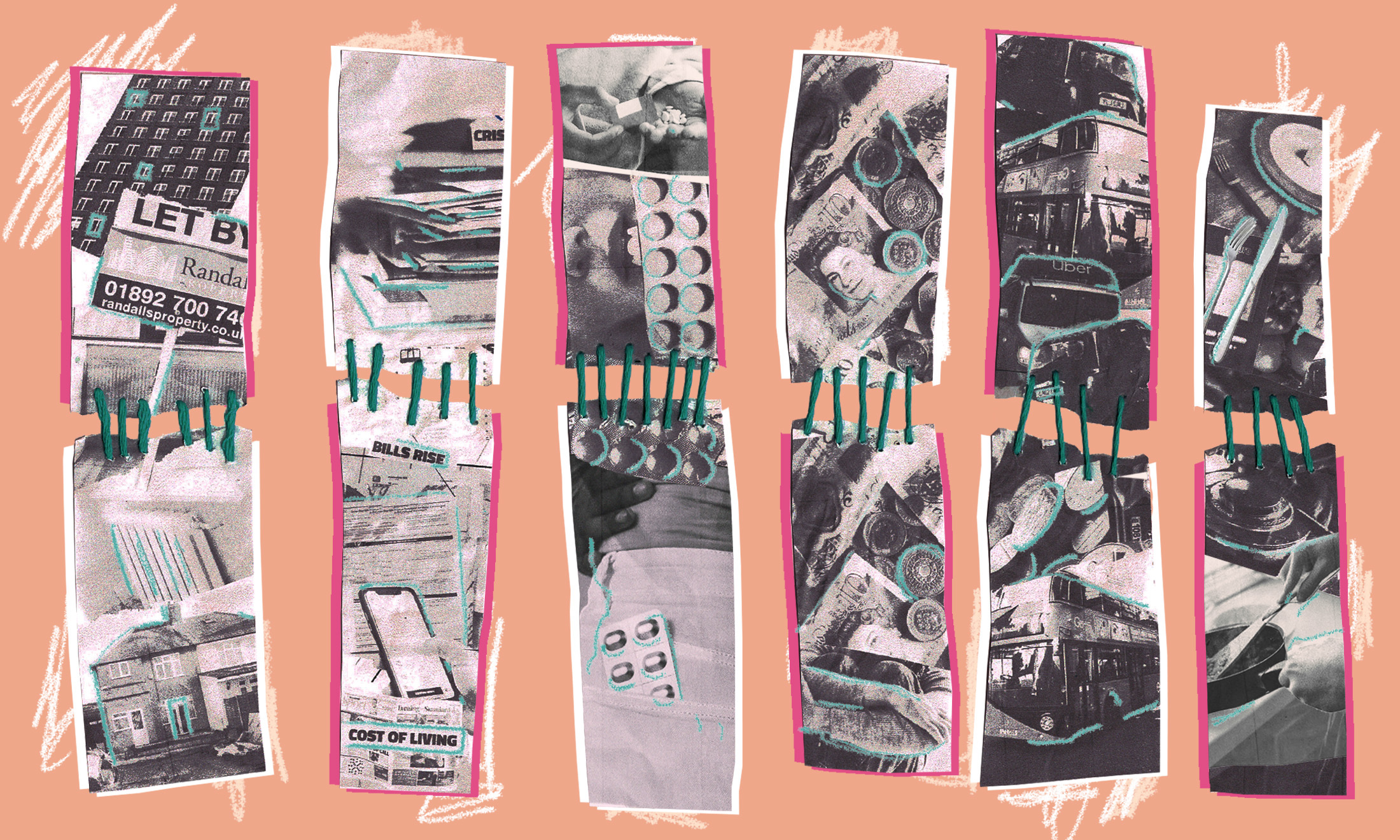
Diyora Shadijanova
Fighting the ridiculous misconceptions around having a stoma bag as a Muslim woman
For World Ostomy Day, one writer reflects on the way having a stoma bag changed the way people saw her within her community.
Omma Ahmed and Editors
02 Oct 2021
“She won’t ever get married.”
“Which daughter is the sick one?”
“Do you know how stressful this has been for your mother?”
“Don’t tell anyone about your bag or illness. They’ll call you disabled.”
I was unprepared for all of this when nine years ago, I went into hospital for a routine examination under anaesthetic to look for signs of inflammation in my intestines and five days later, woke up from emergency surgery with a stoma bag. A stoma (ostomy) is an opening on the wall of the abdomen that diverts the contents of the bowel out of the body. A bag fits around the stoma to collect the contents.
I had been suffering from symptoms such as blood in my stool, extreme weight loss, diarrhoea and excruciating cramps for almost a year as medication had no impact and my symptoms got progressively worse before I was diagnosed with Crohn’s. Crohn’s Disease is one of the two main forms of Inflammatory Bowel Disease (IBD). It causes inflammation of the digestive system and there is no cure. This means that it is ongoing and life-long, although you may have periods of good health (remission) as well as times when symptoms are more active (relapses or flare-ups).
Initially I felt relieved after my diagnosis. There was finally a name for what I had been going through and it wasn’t cancer (yes I was guilty of Googling my symptoms!). After the diagnosis and as I learned more about my illness, anxiety and dread began to set in, knowing I would have to deal with this in some form for the rest of my life. Even 10 years on, this reality is hard to accept at times.
“When I got my stoma bag at age 23, all talk of marriage seemed to skip past me”
Although Crohn’s can sometimes be managed with medication, in severe cases you may need surgery to remove part of your bowel and have a stoma created. Before being diagnosed with Crohn’s, I had never even heard of a stoma. When a nurse first mentioned a stoma bag and where I would want it placed, I felt confused and blindsided. How long would I have a stoma? What would it look like? Would it smell? Would everyone be able to tell I had one? Would my clothes still fit me? As I was internally freaking out, my mum, who was standing next to me in the hospital, started crying. She imagined a huge bag hanging from my stomach, similar to a catheter bag and was worried about what that would mean for me.
Growing up in a Pakistani community means marriageability was always the hot topic of conversation at gatherings, whether here in London or back home.
So when I got my stoma bag at age 23, all talk of marriage seemed to skip past me. I would either have to endure pitying looks and faux concern about my health, or ignorance about ever having been sick. People outside of my family would assume that because I outwardly looked okay, I was now fine. They didn’t seem to understand that a chronic illness meant I would never be cured.
I didn’t mind not being considered for marriage because it was never an ambition or achievement for me, but it angered me that the reason was due to an illness I had no control over. Why was I seen as ‘unmarriageable’ because I didn’t go to the toilet to take a shit? Why did having an illness mean that I was now unworthy of being valued as a partner for someone? Did a bag on my stomach really mean I was unlovable? If anything, it should have shown my resilience and an example of how capable I am of taking care of myself and still remaining positive about life.
“Why was I seen as ‘unmarriageable’ because I didn’t go to the toilet to take a shit?”
I’ve had my stoma for nine years now, and because of my experience I decided to create an Instagram page and start a blog to help organise my thoughts and connect with people I can relate to. Not only has this made me feel self-acceptance, I’ve also had many people, especially other South Asian girls messaging me with dilemmas and questions about my stoma. I know I would have wanted to have these conversations when I was coming to terms with my own health condition.
I’m trying to use this digital space to dispel myths around the stoma. I write about how it doesn’t affect the way I practice religion as the misconceptions are rife. For example, I have been asked what breaks your ablution when preparing for the five daily prayers or whether you can still fast during the month of Ramadan.
Naturally I have been asked about marriage and how to tell a future spouse about an illness or stoma. Since getting married during lockdown in 2020, I now have some experience in this area.
“There is comfort in knowing you’re not alone and you’ll find people who will understand exactly what you are going through”
I’ve also been asked about sex and intimacy related issues such as how to purify yourself after sex and if you have to remove your stoma bag each time before washing. Answering these types of DMs always feels important as having a stoma can make you feel like an outcast, but it’s important to normalise talking these questions through, especially about sex.
I want people to remember that just because they may have a health condition or are missing (part of) an organ, it doesn’t make them less than anyone else. It’s important to surround yourself with support even if it is in the form of an online community. It’s so easy to feel like an outcast, but there is comfort in knowing you’re not alone and you’ll find people who will understand exactly what you are going through.
It’s now been three years since I had further surgery to make my stoma permanent. Life with a chronic illness may be different to what I initially might have imagined, but what is normal anyway? Normality is subjective, so thrive in your new normal.
For more information, support, and resources about Crohn’s, Colitis, or living with a stoma, visit the Crohn’s & Colitis UK website www.crohnsandcolitis.org.uk or call the helpline on 0300 222 5700.









